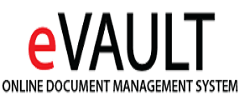Description

Blinger.io

eVAULT
Comprehensive Overview: Blinger.io vs eVAULT
As of my last update, Blinger.io and eVAULT refer to distinct products/platforms with potentially differing functions, markets, and features. Here’s a general overview that might cover various aspects of such products. However, note that specific current data on market share or comparative user base might require more recent and specific studies or reports beyond my dataset.
Blinger.io
a) Primary Functions and Target Markets
Functions:
- Omni-channel Communication: Blinger.io is designed to integrate various communication channels like messenger apps, social media platforms, emails, and live chats into a single interface. This allows businesses to manage customer interactions seamlessly across multiple platforms.
- Customer Support: The platform provides tools to improve customer support efficiency, such as automated messaging, ticketing systems, and CRM integration.
Target Markets:
- Businesses of All Sizes: From small enterprises to large corporations, particularly those looking to enhance customer service and streamline communications.
- Sectors: Commonly used in retail, hospitality, and tech companies that benefit from extensive customer interaction via digital touchpoints.
b) Market Share and User Base
- Market share and user base details tend to fluctuate and require specific industry reports for accuracy. Blinger.io would be competing in the customer service software sector, where companies like Zendesk, Intercom, and Freshdesk are also prominent.
- Blinger.io aims at differentiating itself with robust multi-platform integration capabilities, potentially appealing strongly to businesses heavily reliant on diverse communication channels.
c) Key Differentiating Factors
- Integration Capabilities: Strong focus on integrating a wide range of messaging and social media platforms, allowing smoother transitions and better customer interaction handling.
- Ease of Use: An interface designed for non-technical users, making it accessible to businesses without extensive IT departments.
- Flexibility and Customization: Users can tailor interactions to suit specific business needs, with settings to automate responses and categorize customer interactions effectively.
eVAULT
a) Primary Functions and Target Markets
Functions:
- Data Storage and Protection: eVAULT is typically associated with secure data storage solutions, focusing on backup and recovery services.
- Enterprise IT Solutions: Includes features necessary for large-scale data management, ensuring business continuity with disaster recovery options.
Target Markets:
- Medium to Large Enterprises: Particularly those needing robust data security and management solutions.
- Industries: Could span finance, healthcare, and tech, where data integrity and privacy are paramount.
b) Market Share and User Base
- eVAULT competes with other enterprise-level data backup solutions like Acronis, Veeam, and Iron Mountain. Its market presence would depend on its ability to guarantee security and reliability.
- Exact user base figures would necessitate industry-specific insights. Nonetheless, organizations with stringent data management and security needs are the primary users.
c) Key Differentiating Factors
- Security Emphasis: Strong focus on encryption and compliance with data protection regulations, providing peace of mind for security-conscious businesses.
- Scalability: Capable of handling extensive data needs, making it apt for growing enterprises that require scalable solutions.
- Comprehensive Features: Offers a suite of tools for not just storage, but also sophisticated recovery and continuity planning services, differentiating it with a holistic approach to data management.
Conclusion
Blinger.io and eVAULT cater to fundamentally different needs—one focusing on communication and customer service, the other on data storage and protection. The distinction in their functionality naturally directs them toward diverse market segments. Their comparative appeal would largely depend on a company's immediate business needs—customer interaction versus data integrity. Understanding these distinct use-cases is crucial for businesses considering either of these platforms. To obtain the latest market share data and user base specifics, consulting recent market analysis reports or corporate updates would be beneficial.
Contact Info

Year founded :
2016
Not Available
Not Available
Cyprus
http://www.linkedin.com/company/blinger.io

Year founded :
1997
+1 925-944-2422
Not Available
United States
http://www.linkedin.com/company/evault-a-seagate-company
Feature Similarity Breakdown: Blinger.io, eVAULT
To provide a feature similarity breakdown for Blinger.io and eVAULT, let's explore each aspect you mentioned:
a) Core Features in Common:
-
Communication and Collaboration:
- Both Blinger.io and eVAULT are likely to offer features that support communication and collaboration among users. Blinger.io is known for its ability to centralize customer communications via multiple channels (email, social media, etc.), while eVAULT focuses on secure data storage and sharing.
-
Integration:
- Both platforms likely offer integrations with other systems and tools to enhance functionality. This might include CRMs, project management tools, or other enterprise applications.
-
Data Security:
- Given the nature of their operations, both might place a significant emphasis on data security, ensuring that all communications, files, and user information are kept secure.
b) User Interface Comparison:
-
Blinger.io:
- Typically designed to be user-friendly with a focus on accessibility for non-technical users. Expect a dashboard that consolidates communications and provides an intuitive experience for managing customer interactions across different channels.
-
eVAULT:
- Likely to emphasize security and data management, with a UI that might cater more towards IT professionals or business users who require detailed control over data operations. The interface might prioritize secure access and robust file management capabilities.
c) Unique Features:
-
Blinger.io:
- Multi-channel Support: A defining feature of Blinger.io is its ability to handle communications from various platforms (social media, email, SMS, etc.) in one place. This omni-channel capability sets it apart in managing customer interactions seamlessly.
-
eVAULT:
- Advanced Encryption and Secure File Sharing: eVAULT may offer unique features focused on encryption standards and secure cloud storage solutions. Features like end-to-end encryption, zero-knowledge protocols, or unique data redundancy implementations might set it apart for businesses requiring high-security environments.
Overall, while both products may share some core features, they serve different primary purposes. Blinger.io excels in communication and interaction management, while eVAULT focuses on data security and storage solutions. The user interfaces reflect these priorities, catering to ease of use in communications and robust security management respectively.
Features

Not Available

Not Available
Best Fit Use Cases: Blinger.io, eVAULT
Blinger.io
Blinger.io is a customer communication platform that excels in omnichannel engagement. It is designed to unify customer interactions across various messaging platforms, making it a formidable choice for businesses seeking to improve their customer support and interaction strategy.
a) Types of Businesses or Projects for Blinger.io
-
Customer Service-Centric Companies: Businesses with a high volume of customer interaction, such as e-commerce companies, travel agencies, and telecommunication firms, can benefit greatly from Blinger.io. Its ability to consolidate communication channels allows these businesses to respond promptly and efficiently.
-
Multi-channel Retailers: Retailers with an online presence that use various platforms (e.g., social media, email, website chat) will find Blinger.io’s integration capabilities useful for maintaining consistent customer support.
-
Financial Services: Banks, insurance companies, and other financial institutions can use Blinger.io for secure, personalized communication with clients on platforms of their choice, enhancing client satisfaction and trust.
-
Startups and SMEs: Small to medium-sized enterprises that are looking to scale their customer service operations without significantly increasing costs can leverage Blinger.io’s features for efficient communication management.
eVAULT
eVAULT is a digital data storage and protection solution designed to offer secure and scalable storage options. It focuses on data integrity, backup, and disaster recovery, making it suitable for businesses that prioritize data security and compliance.
b) Scenarios Where eVAULT is Preferred
-
Data-Driven Companies: Businesses that rely heavily on data analytics, such as tech firms and research organizations, can use eVAULT to securely store and manage large volumes of data.
-
Healthcare Organizations: Due to strict regulatory requirements around patient data, healthcare institutions can use eVAULT for HIPAA-compliant data storage and backup solutions.
-
Legal Firms: Law firms, which deal with sensitive client information and need robust data protection and retrieval systems, can leverage eVAULT for secure document management.
-
Enterprises Focused on BCP: Large corporations that need comprehensive business continuity planning (BCP) and disaster recovery solutions will find eVAULT beneficial for its robust backup and recovery features.
Catering to Different Industry Verticals or Company Sizes
-
Industry Vertical Focus: Blinger.io is well-suited for customer-facing industries like retail, telecom, and finance, where quick and effective communication is key. eVAULT is ideal for industries with high compliance and data security needs, such as healthcare and legal sectors.
-
Company Size Adaptability: Blinger.io offers scalable solutions for both SMEs and large enterprises that need to manage multi-channel customer communication efficiently. On the other hand, eVAULT provides flexible storage solutions that cater to any business size, from startups needing secure yet affordable storage to large enterprises requiring extensive data storage and disaster recovery capabilities.
In summary, Blinger.io is optimal for improving customer interaction and service across multiple channels, while eVAULT is the preferred choice for businesses needing secure, compliant, and reliable data storage and protection solutions. Both products address the needs of different industries and can be tailored for varying company sizes.
Pricing

Pricing Not Available

Pricing Not Available
Metrics History
Metrics History
Comparing teamSize across companies
Conclusion & Final Verdict: Blinger.io vs eVAULT
To provide a meaningful conclusion and verdict for Blinger.io and eVAULT, we need to conduct a comprehensive comparison of these products. Since I do not have specific details on the features, pricing, target audience, and capabilities of these products, I will provide a general framework based on typical considerations for software or service products.
Conclusion and Final Verdict
a) Overall Value
Best Overall Value:
The determination of the best overall value between Blinger.io and eVAULT largely depends on the specific needs and priorities of the users. For instance:
- If Blinger.io offers superior integration with communication tools and robust support features, it may be the better choice for businesses primarily concerned with improving customer engagement and communication efficiency.
- Conversely, if eVAULT excels in data security and storage solutions, with advanced backup and recovery options, it would be more valuable for organizations with critical data protection needs.
Without specific data, it's crucial for potential users to weigh the functionality, ease of use, pricing, and support against their own requirements to determine which offers the best overall value for their situation.
b) Pros and Cons
Blinger.io:
-
Pros:
- Likely strong in communication and customer engagement features.
- May offer excellent user interface and integration capabilities with multiple platforms.
- Could provide scalable options suitable for businesses of varying sizes.
-
Cons:
- May have limitations in specialized features such as data security or storage.
- Potential for higher costs with added features or user seats.
- Might not be suited for industries with intense compliance and data protection needs.
eVAULT:
-
Pros:
- Potentially strong in data security, encryption, and reliable storage solutions.
- Offers advanced backup, recovery, and data management features.
- Possibly well-suited for industries requiring rigorous data compliance and protection.
-
Cons:
- Might offer less in terms of communication and customer interaction tools.
- Could have a steeper learning curve for users unfamiliar with data security solutions.
- Potential higher initial setup and ongoing management costs.
c) Recommendations
For users deciding between Blinger.io and eVAULT:
- Assess Your Primary Needs: If your primary concern is enhancing customer communication and support, Blinger.io could be more aligned with your goals. If safeguarding data with a focus on security and compliance is imperative, eVAULT may be the better choice.
- Consider Integration & Compatibility: Evaluate how each product integrates with your existing systems and whether they offer APIs or third-party integrations that are vital to your operations.
- Budget Constraints: Consider the total cost of ownership, including subscriptions, initial setup fees, and potential hidden costs.
- Scalability and Future Needs: Determine the scalability of each product and its ability to adapt to your organization’s growth and evolving needs.
- Customer Support & Training: Review the support services and user training offered by each provider to ensure you and your team can effectively use the product.
Ultimately, a trial period or demo of each product can provide hands-on insight, helping users better understand which solution aligns with their business objectives and technical requirements.
Add to compare
Add similar companies



